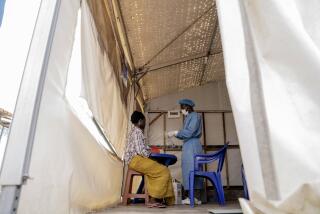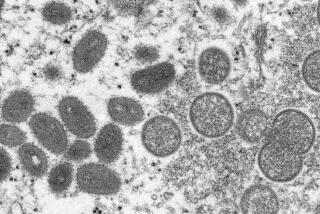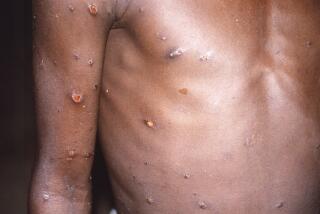WHO releases action plan for antibiotic-resistant gonorrhea
- Share via
Cases of gonorrhea that resist the last remaining antibiotic treatments for the the sexually transmitted disease have been detected in Australia, France, Japan, Norway, Sweden and Britain, officials at the World Health Organization said Wednesday.
Sounding an alarm about the immense risks now posed by this once easily curable bug, the Geneva-based public health body announced a global action plan to control its spread and effect. The plan will focus on development of new treatments and on monitoring for incorrect use of antimicrobial agents — a practice that can promote the development of drug resistance in Neisseria gonorrhoeae, the microbe that causes the disease.
Gonorrhea infects 106 million people worldwide each year, the agency reported. Untreated, it can cause complications such as infertility, infections, stillbirths and increased susceptibility to HIV infection. Babies born to mothers with gonorrhea have a 30% to 50% chance of developing eye infections, and potentially blindness.
In a statement released Wednesday, WHO scientist Manjula Lusti-Narasimhan said that gonorrhea was “becoming a major public health challenge.” The Associated Press noted it was likely that many cases of treatment-resistant gonorrhea in less-developed nations had gone undetected, since the countries where the bug has been detected thus far are all places with sophisticated public health systems.
“The available data only shows the tip of the iceberg. Without adequate surveillance we won’t know the extent of resistance to gonorrhea,” Lusti-Narasimhan said in the WHO statement.







